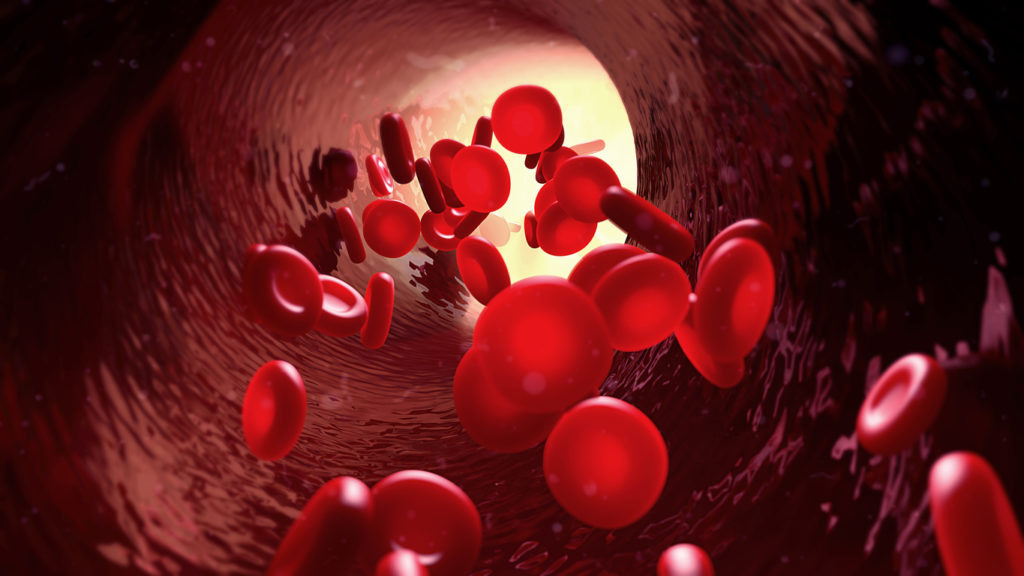Dr Nicholas Wickham explains the importance of blood and blood products. He talks about the advantages of artificial blood substitutes and the current substitutes available.
Transcript
 We are all aware of how important blood is and how it may be lifesaving for those who are injured and have severe bleeding. Blood is obtained by donations from volunteer donors in Australia and there is an increasing demand for blood and blood products.
We are all aware of how important blood is and how it may be lifesaving for those who are injured and have severe bleeding. Blood is obtained by donations from volunteer donors in Australia and there is an increasing demand for blood and blood products.
A totally artificial blood substitute would help meet this increased demand and would be attractive for many other reasons. These include freedom from potential infectious agents such as hepatitis or the AIDS virus, not having to keep the blood refrigerated, not having to cross-match it as it would not have blood groups, the ability to treat patients such as Jehovah’s Witnesses who have objections to the use of human blood products, and the ability to manufacture and store the blood at any suitable site.
Unfortunately, blood is a very complex mixture of cells and a fluid containing mineral salts, proteins, nutrients and hormones. However in the short term, the three most important ingredients are the red cells for gas transport, the salt solution to carry the red cells, and the protein albumin which helps the fluid in circulation by stopping it leaking into the tissues.
Initial attempts at blood substitutes at the end of the 19th century were what we call simple plasma volume expanders – that is, they just replaced the volume of blood loss, and did not attempt to replace the red cells which carry oxygen to the tissues and remove carbon dioxide, the waste gas.
If you lose more than 30% of your blood volume – that’s about 1 ½ to 2 litres – this will cause a severe drop in blood pressure, which means there is insufficient pressure to allow circulation of the blood to the tissues. If you can replace this lost volume, then blood pressure and circulation can be maintained whilst preparing for surgery. This is known as resuscitation.
A variety of simple salt solutions or plasma substitutes containing alternatives to the protein albumin (these may be complex molecules made from sugars, starch or gelatine) have been developed. Any of these are very useful in an emergency to maintain blood pressure and the circulation, but they all suffer from the defect of not being able to carry oxygen around the body.
 Approaches to artificial oxygen-carrying red cell substitutes are focused on three broadly different approaches. Firstly, a totally artificial oxygen-carrying molecule. The most successful have been modified fluorocarbon molecules, similar to substances such as Teflon used in nonstick frying pans. These have to be prepared as micro-emulsions, rather like milk, that will flow easily through the blood vessels. The emulsions have to be stable and not break down or coalesce. Stability in the circulation and during storage has been a problem with many of these.
Approaches to artificial oxygen-carrying red cell substitutes are focused on three broadly different approaches. Firstly, a totally artificial oxygen-carrying molecule. The most successful have been modified fluorocarbon molecules, similar to substances such as Teflon used in nonstick frying pans. These have to be prepared as micro-emulsions, rather like milk, that will flow easily through the blood vessels. The emulsions have to be stable and not break down or coalesce. Stability in the circulation and during storage has been a problem with many of these.
Secondly, using haemoglobin extracted from red cells and crosslinking it so that it is stable in the circulation but still able to transport respiratory gases. This has been very difficult to achieve in practice. Some designs carry oxygen well but are very short-lived, some are long-lived but not very efficient, and some designs have been toxic to the heart or other tissue.
Thirdly, people have tried to develop artificial red cells or microcapsules made from phospholipid membranes that do not carry any blood groups and can be used to carry haemoglobin molecules inside. Again, there have been problems of stability of the microcapsules, and you still need to get the haemoglobin from human beings or other animals.
So none of these approaches have as yet been able to satisfy the requirements for safety, stability and absence of side effects that will permit them to reliably take the place of red cell transfusions. The search goes on and one day may be successful.
In the meantime, I urge all of you who are fit and able to donate blood, to sign up and become a regular blood donor. You never know when you may be next in need of blood.
More information
 |
For more information on blood, blood types, blood tests, and blood donation and transfusion, see Blood. |
All content and media on the HealthEngine Blog is created and published online for informational purposes only. It is not intended to be a substitute for professional medical advice and should not be relied on as health or personal advice. Always seek the guidance of your doctor or other qualified health professional with any questions you may have regarding your health or a medical condition. Never disregard the advice of a medical professional, or delay in seeking it because of something you have read on this Website. If you think you may have a medical emergency, call your doctor, go to the nearest hospital emergency department, or call the emergency services immediately.







